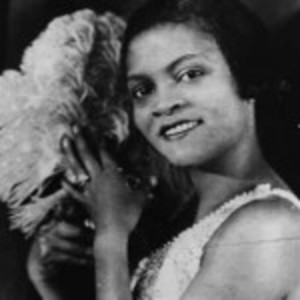
African-American Theatre
Introduction
African-American theatre as a genre includes work written and created by African-American writers. Social and aesthetic movements such as the Harlem Renaissance and Black Arts Movement inspired new methods of creation and publication in the arts, as well as expanding the audience for the works. African-American theatre history and literature is complex and sometimes contradictory. This guide offers a general overview of the representation of African-American performers, stories, dramatic works, and audiences.
Key Dates, Events, & Genres
- 1821 - The African Grove Theatre is founded by William Alexander Brown
- 1853 - George L. Aiken’s Uncle Tom’s Cabin is presented at the National Theater in New York
- 1909 - the National Association for the Advancement of Colored People (NAACP) is founded by W.E.B. Du Bois and other leaders
- c.1914-1939 - the Harlem Renaissance
- 1921 - Shuffle Along premieres on Broadway
- 1940 - The American Negro Theatre is founded in Harlem
- 1959 - Lorraine Hansberry’s A Raisin in the Sun is the first play by an African-American woman to be produced on Broadway
- 1965 - Amiri Baraka (formerly Leroi Jones) founds the Black Arts Repertory Theatre/School (BARTS)
- 1974 - Joseph A. Walker is the first African-American playwright to win the Tony Award for Best Play, The River Niger
- 1975 - Charlie Smalls wins the Tony Award for Best Original Score for The Wiz; Geoffrey Holder wins for Best Musical Direction
- 1996 - Bring in ‘Da Noise, Bring in ‘Da Funk premieres
- 2012 - Suzan-Lori Parks is the first African-American woman to win the Pulitzer Prize for Drama for her play Topdog/Underdog
- 2017 - Lynn Nottage becomes the first woman to win the Pulitzer Prize for Drama twice: Ruined (2009) and Sweat (2017)
- 2016 - Shuffle Along, or, the Making of the Musical Sensation of 1921 and All That Followed premieres
- 2018 - Slave Play by Jeremy O. Harris debuts Off-Broadway before transferring to Broadway in 2019. Controversy over the play’s themes, especially the representation of Black women during slavery, prompted petitions calling for the production to be shut down.
Context & Analysis
The African Grove Theatre Company was the first company founded by an African-American director and writer. In 1821, William Alexander Brown established the group, originally performing in his backyard in New York City. The company’s repertoire was largely based on Shakespeare’s plays--especially Richard III and
to read our learning module for African-American Theatre and to unlock other amazing theatre resources!ÐÇ¿ÕÓéÀÖ¹ÙÍø Resources
ÐÇ¿ÕÓéÀÖ¹ÙÍø Sections
Guides
Author Guides:
- Amiri Baraka
- Jocelyn Bioh
- Carlyle Brown
- Alice Dunbar-Nelson
- Idris Goodwin
- Lorraine Hansberry
- Langston Hughes
- Zora Neale Hurston
- Branden Jacobs-Jenkins
- Adrienne Kennedy
- Tarell Alvin McCraney
- Dominique Morisseau
- Lynn Nottage
- Suzan-Lori Parks
- Ntozake Shange
- Charlie Smalls
- Anna Deavere Smith
- Mark Stewart “Stew�
- August Wilson
- Aubrey Lyles
- Flourney Miller
- Noble Sissle
- Eubie Blake
- Jeremy O. Harris
- Katori Hall
- Georgia Douglas Johnson
Show Guides:
- The African Company Presents Richard III
- The America Play
- Detroit �67
- Direct from Death Row the Scottsboro Boys
- Dutchman
- Fabulation or, The Re-Education of Undine
- Fences
- Funnyhouse of a Negro
- for colored girls who have considered suicide/when the rainbow is enough
- How We Got On
- In the Blood
- In the Red and Brown Water
- Intimate Apparel
- Jitney
- Joe Turner’s Come and Gone
- Ma Rainey’s Black Bottom
- Marcus; or the Secret of Sweet
- Mine Eyes Have Seen
- Mulatto: A Tragedy of the Deep South
- Mule Bone
- An Octoroon
- Passing Strange
- The Piano Lesson
- Pipeline
- A Raisin in the Sun
- Simply Heavenly
- Topdog/Underdog
- Twilight: Los Angeles, 1992
- The Wiz
- Slave Play
- Eubie
- Les Blancs
- Blue-Eyed Black Boy
- Plumes
- Children of Killers
Theatre Eras & Movements Guides:
Practitioner Guides:
History on Stage:
For Teachers (ÐÇ¿ÕÓéÀÖ¹ÙÍø For Schools Subscribers Only):
- Unit:
- Unit:
Blog Posts
Links & Media
Quizzes

Cindi Calhoun
Theatre teacher, director, writer, and seamstress